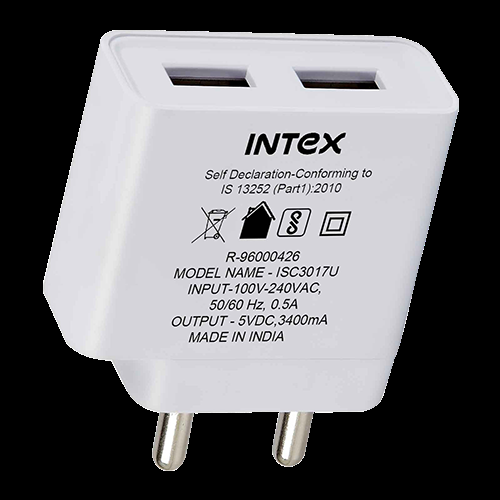why is power conserved?
The Nature just works that way. That means: our Universe happens to have this power conservation property. It follows from more basic laws, but that's how it is. Power cannot be created from "nothing".
For there to be higher power on the output than on the mains input, something else would need to provide the missing power, so that the sum of power out equals the sum of power in.
In practice: mains power in = USB power out + heat power out + radiated RF power out (tiny) + radiated sonic power out (minuscule, but if you can hear it, it loses some power to "audio").
why the increase of voltage does not increase current?
Conversely: why would it increase current? Where does this expectation come from? Perhaps when you think about what made you expect an increase in current, you'll figure out the underlying more basic misunderstanding you got.
in a generator or a battery, when the voltage increase, the current also increases according of the resistance in the circuit
No. That has nothing to do with a generator or a battery. If and only if the load is resistive, will increase in voltage increase current.
The power converters are not resistive. That is the whole point of why we bother with all the switching circuitry and transformers. Otherwise, you could just have a linear regulator from mains. It would waste tremendous amounts of power, but it would work.
why in a generator when the voltage increase, thus the current increase
That's generally false. It is only true when the load is resistive.
but it's not the case in a transformer, why ?
Because a transformer is not a resistive load.
Generally speaking, as long as energy/power are conserved, the load can have an arbitrary relationship between voltage and current. You can have loads that regulate current according to Ohm's law (resistors), loads that keep constant current, loads that have nonlinear resistance (light bulbs), loads that keep constant voltage (shunt regulators), and many others - as many as you can think of really.
why is the energy conserved?
It's a law of Nature. That's how our universe works. It's a fundamental principle really. There may be some other universes where energy is not conserved. We have some trouble imagining the rest of consistent physical laws in them, to say the least.

